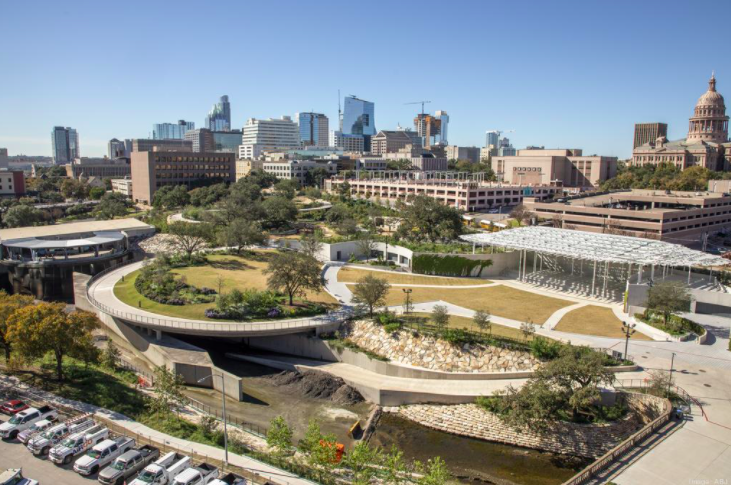As a testament to Central Texas’ continued economic boom, the metro has seen more jobs announced from company relocations and expansions this year than ever before — and local leaders expect more to come in the final weeks of 2021.

Through November, companies of different sizes and industries have promised to create roughly 23,150 jobs across the metro, surpassing the previous record of 22,114 jobs announced for the entirety of 2020, according to data compiled by Opportunity Austin, which is the economic development arm of the Greater Austin Chamber of Commerce. This metric underscores how the Texas capital — already one of the most resilient economies during the pandemic — is poised to keep flourishing.
“2021 will be the Triple Crown in economic development for Central Texas,” said Gary Farmer, chairman of Opportunity Austin. “This year has already proved to be the best year for corporate relocations to the region, for corporate expansions in the region and for the greatest number of direct jobs announced in the region.”
Through November, Farmer said 126 companies already in Central Texas have chosen to expand and 86 companies have relocated operations. Dozens of those are likely headquarters relocations; Austin Business Journal has tallied at least 30 such moves this year. And there are likely even more expansion and relocations flying under the radar that chamber officials and the media don’t know about.
Elon Musk’s Tesla Inc. (Nasdaq: TSLA) is the latest to relocate its corporate operations, previously based in Palo Alto, California. CEO Musk announced plans back in October to base the HQ in Silicon Hills, and the move was made official Dec. 1. The job impact from the relocation is unknown, though the headquarters is at the company’s rising electric vehicle factory east of Austin, which Musk has said will need 10,000 people through 2022.
It’s not a big surprise that the region is having another record breaking year. Data over the last few months showed Central Texas pacing to break last year’s record, but Samsung Electronics Co. Ltd.’s decision to put its $17 billion chipmaking plant in the suburb of Taylor — which comes with at least 2,000 direct jobs — catapulted the metro’s annual job gains to unforeseen heights.
“While this has been an amazing year, we are not through by any means as December could be a major month for announcements as well,” Farmer said.
Back in August, Farmer told Austin Business Journal that more than 250 companies were actively eyeing the region for an HQ move or expansion — a level of corporate interest he’d never seen before. Farmer said at publication time that the number of prospects was still in that range.
“The Opportunity Austin staff has been brilliant in their execution of our plan and the prospects for future success are bright. Our prospect pipeline has never been as robust and as diversified as it is at this moment,” he said.
Central Texas has been buzzing with economic activity for many years now, and leaders have said the diversity of Austin’s economy is one of the reasons it was among the first in the country to recover from the pandemic.
There were roughly 1,174,900 non-farm payroll jobs in October, 32,500 jobs more than February 2020, the month before the pandemic descended on the region, according to a Nov. 22 analysis by the Austin Chamber. That doesn’t mean that each of the 137,000 jobs lost in March and April 2020 has been regained, but the wider job market has bounced back to pre-pandemic footing. For example, Austin’s leisure and hospitality sector is still inching toward recovery, with 9,800 fewer jobs than pre-pandemic levels.
Austin’s economic activity has included relocations and expansions from companies of all size — from globally recognized names such as Samsung and Tesla to startups — and varying industries, including automobile manufacturing, life sciences and financial technology.
“We’re bringing more dynamic, globally significant companies to the region, and what that means for the people that are living in this region is more opportunities,” said Laura Huffman, president and CEO of the Austin Chamber. “We’re thrilled that 2021 is turning out to be yet another record year.”

Back in August, Farmer told Austin Business Journal that more than 250 companies were actively eyeing the region for an HQ move or expansion — a level of corporate interest he’d never seen before. Farmer said at publication time that the number of prospects was still in that range.
“The Opportunity Austin staff has been brilliant in their execution of our plan and the prospects for future success are bright. Our prospect pipeline has never been as robust and as diversified as it is at this moment,” he said.
Central Texas has been buzzing with economic activity for many years now, and leaders have said the diversity of Austin’s economy is one of the reasons it was among the first in the country to recover from the pandemic.
There were roughly 1,174,900 non-farm payroll jobs in October, 32,500 jobs more than February 2020, the month before the pandemic descended on the region, according to a Nov. 22 analysis by the Austin Chamber. That doesn’t mean that each of the 137,000 jobs lost in March and April 2020 has been regained, but the wider job market has bounced back to pre-pandemic footing. For example, Austin’s leisure and hospitality sector is still inching toward recovery, with 9,800 fewer jobs than pre-pandemic levels.
Austin’s economic activity has included relocations and expansions from companies of all size — from globally recognized names such as Samsung and Tesla to startups — and varying industries, including automobile manufacturing, life sciences and financial technology.
“We’re bringing more dynamic, globally significant companies to the region, and what that means for the people that are living in this region is more opportunities,” said Laura Huffman, president and CEO of the Austin Chamber. “We’re thrilled that 2021 is turning out to be yet another record year.”
The Article is from Austin Business Journal, copyright belongs to owner

